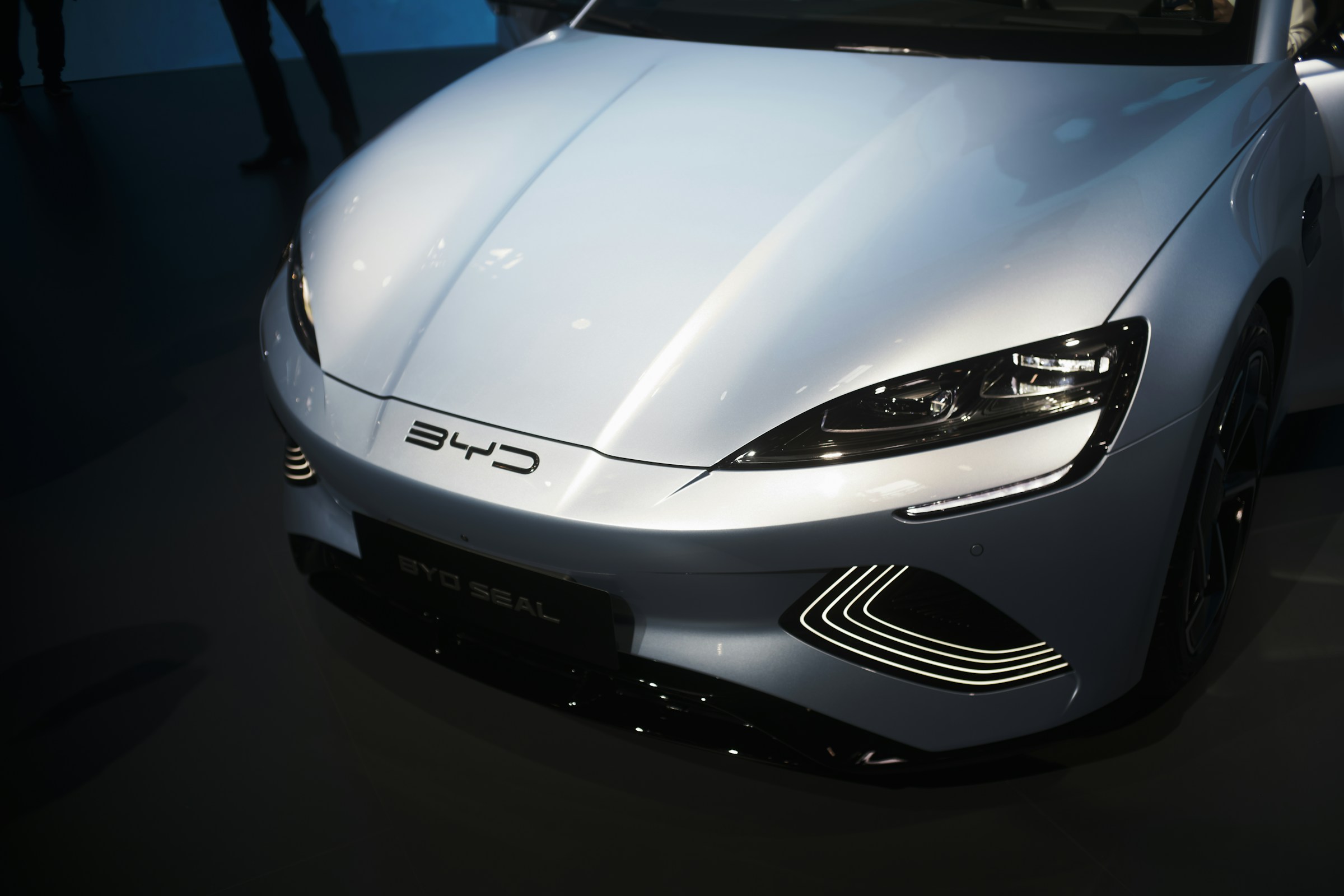The surprise isn’t that EV maker BYD is gaining ground—it’s how cleanly it just blew past Toyota in Singapore’s new passenger car market. For the first half of 2025, BYD registered 4,667 new vehicles, up 80.4% from the same period in 2024. It now commands a 19.5% market share, beating Toyota’s 14.4%. For context, Toyota held the full-year crown in 2024.
This looks like an EV win. But beneath the surface, it’s a product-channel fit masterclass—and a glimpse into what happens when platform-native carmakers beat legacy brands at their own retail game.
What makes BYD’s surge notable isn’t just the vehicle category. Singapore has long leaned pragmatic when it comes to car ownership—pricing, quota premiums, and space constraints all make cost-to-utility ratios far more important than brand nostalgia. BYD figured this out early and optimized not just product specs, but how those products reach the market.
BYD’s alignment with Singaporean EV incentives, its aggressive COE (Certificate of Entitlement) bidding strategy, and a growing network of local showrooms positioned it not just as an alternative, but as a default. In contrast, Toyota has struggled to localize its hybrid-first strategy in a market that now increasingly rewards full electrification.
It’s not that Toyota got worse. BYD just figured out the right monetization funnel faster—one that spans price point, showroom footprint, financing models, and after-sales bundling. It’s closer to a platform than a car company.
The bigger story isn’t that BYD outsold Toyota. It’s that BYD is becoming a vertically integrated ecosystem player in a space where most legacy brands still act like wholesalers.
Singapore’s car market is structurally different from markets like the US or China. Volume is capped by the COE system, meaning you can’t scale mindlessly. You win by owning the supply chain tight enough to predict, price, and preload demand in advance.
BYD, with its upstream control over battery production, internal component stacks, and increasingly its software layer, has the margin to play offense in a market where Toyota has to protect its blended hybrid-EV margins and dealer incentive structure.
This isn't just a car company that sells electric. It’s a mobility platform that understands how regulatory policy, energy pricing, and urban planning intersect. BYD is executing that playbook country by country—and Singapore is now a reference case.
Singapore’s total new passenger car registrations rose 29% year-on-year to 23,957 in the first half of 2025. That lift is meaningful—more permits, more movement—but BYD’s leap far outpaces the market. Legacy premium brands like BMW and Mercedes-Benz also grew in raw numbers but lost share. That’s telling. BMW nudged up to 2,664 units from 2,523, while Mercedes-Benz hit 2,537 from 2,463. But both shrank in percentage terms, signaling stagnant market power.
Honda, meanwhile, jumped 50.5% to 2,268 units, lifting its share to 9.5%. That’s the other strategic hint: the mass-market buyer is reemerging—but with new expectations. Cheaper isn’t enough. Electrified, supported, and locally contextualized wins. This isn’t an EV story versus ICE (internal combustion engine). It’s a full-stack story versus middleman fragmentation. And the brands gaining are the ones with full-stack advantages.
BYD’s Singapore win is what happens when product, price, and policy fit converge—and when the company controlling those layers isn’t afraid to play multi-quadrant.
Legacy automakers often split their product lines by brand tiers, regional exclusives, or dealer-enforced segmentation. That slows down responsiveness and erodes channel control. BYD, much like Xiaomi in phones or Shopee in e-commerce, is building a playbook that integrates product, pricing logic, and last-mile sales into a seamless performance loop.
In platform terms, they’ve compressed the feedback cycle. Product tweaks based on local response, pricing adjustments based on COE trends, and financing offers aligned with HDB demographics—all deployed fast.
What’s clear is this: in quota-limited markets with high pricing visibility and little loyalty to legacy, the platform-native player wins by iteration speed and control, not just brand recall.
This isn’t an EV wave—it’s a supply chain power move dressed as electrification. BYD’s 19.5% market share in Singapore reflects not just demand trends, but execution truth. When product teams sync with ops, when margin control allows pricing agility, and when regulatory fit is treated as design—not constraint—this is what it looks like.
Founders and operators should take note: winning isn’t about trend alignment. It’s about platform leverage, vertical depth, and how fast you can rebuild your stack when the market shifts. Toyota didn’t lose. BYD just played a different game.
What’s often missed in this narrative is that Singapore is one of the most policy-constrained, supply-gated auto markets in the world. You can’t brute-force your way in with ad spend or inventory. You need micro-tuned price modeling, local service logic, and operational cadence to match. BYD isn’t just scaling product—it’s scaling control. That’s what turns a hardware bet into a durable moat. And it’s what most traditional brands still underestimate.














.jpg&w=3840&q=75)